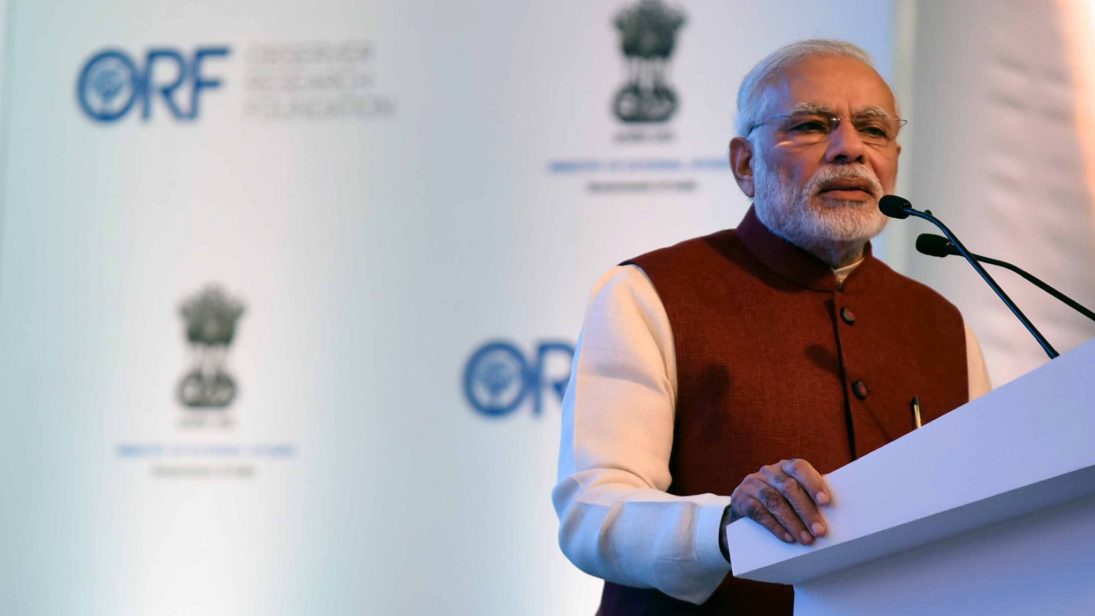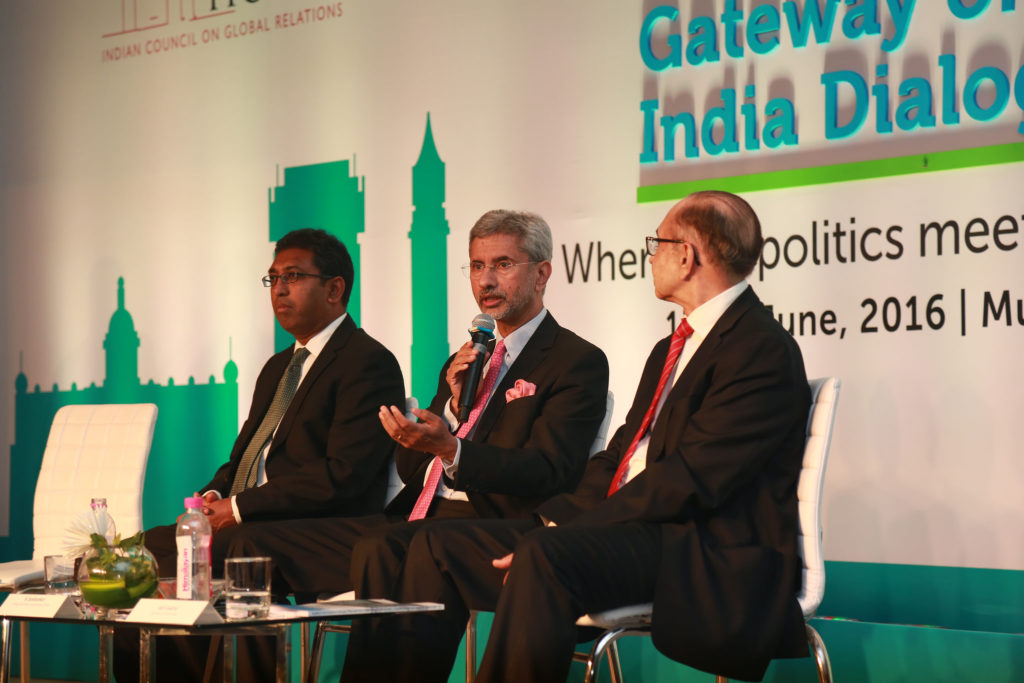
Think tanks provide an informal space for an exchange of ideas between states. Multilateral conferences hosted by think tanks can bring together leaders and analysts from like-minded states and devise solutions to common problems. In the case of long-standing conflicts, think tank-facilitated dialogues can generate discourse that may help transform the image of the adversary and enable conflict management and cooperation. For these reasons, it is fitting that India’s Ministry of External Affairs (MEA) is increasingly using think tanks as a medium to highlight India’s aspirations to be a leading power and advance Indian interests by engaging global leaders, influencers, and policymakers. The Raisina Dialogue, held last month in New Delhi, is an example of this effort.
The annual Raisina Dialogue, jointly convened by the MEA and the Observer Research Foundation (a leading Indian think tank), provides a platform for distinguished participants from the realms of politics, defense, diplomacy, academia, and journalism from all over the world to address pressing issues facing the global community. It has been likened to Singapore’s prominent Shangri-La Dialogue. In the past, the forum has seen participation from global leaders such as former Afghan President Hamid Karzai, former Canadian Prime Minister Stephen Harper, and British Secretary of State for Foreign and Commonwealth Affairs, Boris Johnson. This year, Israeli Prime Minister Benjamin Netanyahu, along with several former heads of states, serving and retired foreign ministers and chiefs of defense shared panels with their Indian counterparts.
Think tanks have played a significant role in shaping the foreign policy of major states since the 1960s through their advocacy of independent research and convening of unofficial dialogue. For instance, the Dartmouth Conference conducted by the U.S.-based Kettering Foundation during the Cold War promoted talks with the Soviet Union on disarmament, trade, and even the environment. Similarly, the Neemrana Dialogue conducted in the 1990s by the U.S. government, with support from the Ford Foundation, played a significant role in facilitating confidence-building mechanisms between India and Pakistan. Much in the same vein, the three iterations of the Raisina Dialogue have demonstrated India’s intention to play a critical role in the Indian Ocean and engaged stakeholders to ideate on a new security framework in Asia. For instance, this year, the panel on “Unchartered Waters: In Search for order In the Indo-Pacific” featuring the naval chiefs of India, Australia, the United States, and Japan demonstrated India’s commitment towards the informal quadrilateral grouping of like-minded countries that have come to be known as “the Quad.” Many analysts took note of this panel as an indication of India’s objective of containing China in Asia through this quadrilateral grouping.

While U.S.-based think tanks have enjoyed a working relationship with their government since the peak of the Cold War, Indian think tanks and their government have only recently managed to forge a cooperative relationship. Besides the Raisina Dialogue, the MEA has also been holding the Gateway of India Dialogue, in partnership with Gateway House, to conduct multilateral talks on geoeconomic issues. Since 2016, the Ministry has also partnered with the Institute of Chinese Studies, the Indian Council of World Affairs, and the Chinese Academy of Social Sciences to carry out the India-China Think Tank Forum. This forum, in addition to laying down mechanisms for structured and regular exchanges of science and technology and cooperation on cyber-security issues, has been instrumental in the construction of the Bangladesh China India Myanmar Economic Corridor (BCIM). In the past couple years, the MEA has also partnered with the Indian Council for World Affairs (ICWA) and the Moscow State Institute of International Relations to convene the Heads of India-Russia Think Tanks’ summit, and with the Delhi Policy Group to convene the India Japan Track 1.5 Dialogue. The third such dialogue took place late last year with the aim of strengthening economic, energy, and security cooperation with the two states. In many such cases, therefore, think tank dialogues have helped overcome diplomatic inertia between states by opening channels of communication for deliberation on areas of cooperation and partnership.
Indian think tanks are increasingly influencing policy discussions, and now even some U.S.-based think tanks, such as the Brookings Institution and the Carnegie Endowment of International Peace, have established centers in India. Moreover, the MEA has begun to rely greatly on the expertise and analytical input from these independent think tanks for its foreign policy planning. It has also extended financial and advisory support to many of them to conduct seminars and workshops. As the think tank community in India continues to grow, so too is the MEA’s use of these institutions to convey India’s foreign policy priorities and position as a regional and global leader.
While this has been a successful strategy, the government has largely avoided critically engaging with counterparts from China and Pakistan through think tank diplomacy. To better harness the numerous advantages the think tank environment provides, India must use these platforms to facilitate dialogue with strategic experts and officials from the militaries and governments of China and Pakistan on recent tensions as well as decades-old disputes. Such initiatives could go far in assuaging regional tensions and building a peaceful atmosphere in the region, both of which should be top priorities for India going forward.
***
Image 1: MEAphotogallery via Flickr
Image 2: MEAphotogallery via Flickr


